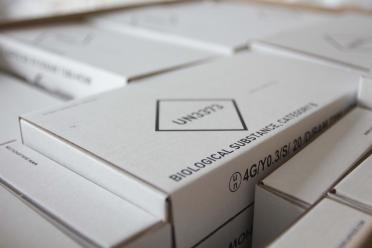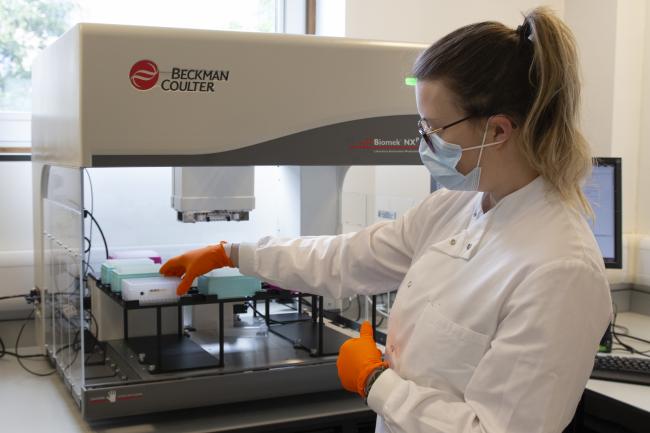
The University is offering staff and students a free swab test for Covid-19 at the start of the academic year with the aim of limiting transmission of the virus and to provide reassurance to students, staff and the Norwich community.
The testing initiative is being run in partnership between UEA and the Earlham Institute, making use of in-house scientific expertise and laboratory facilities on Norwich Research Park. It is separate, but complementary to, the national Covid-19 testing programme.
The test, which tells people if they have the virus at the time of testing, is offered on a voluntary basis to all students at UEA – undergraduate, postgraduate taught and postgraduate research students – as well as to staff who are regularly working on campus.
People are first asked to sign-up online before collecting a test kit from campus, then self-administering a swab test and returning it that day. The team will endeavour to return test results within 24 hours of receiving the swab.
Professor Neil Hall, Director of the Earlham Institute, said: “The Covid-19 second wave is partly being driven by transmission among younger, mostly asymptomatic, carriers. Community testing will give us the real-time information we need so the university can act quickly to disrupt the chain of transmission. I’m proud that we’ve been able to bring together local knowledge and expertise to help protect our community.”
This announcement follows the successful Norwich Testing Initiative pilot study, which was run over the Summer by Norwich Research Park. This feasibility study was designed to stress test the logistics and efficiency of community testing and provide a platform for validating new testing approaches.
Prof Dylan Edwards, Pro-Vice-Chancellor of UEA’s Faculty of Medicine and Health Sciences, said: “Testing is voluntary but strongly recommended, especially if people are living, working or are regularly visiting our campus. Based on initial expressions of interest, we think this is something people will interested in to help keep themselves and the community safe.
“The national testing system has focused on symptomatic testing but we will be complementing this with testing of people without symptoms to prevent the silent spread of the virus.”
The Norwich Testing Initiative is also looking at ways of extending the programme, working with partners across Norwich Research Park and local agencies.
The testing is in addition to safety measures in place on campus which students, staff and visitors are asked to follow, including a one-way system, social distancing, wearing of face coverings, practicing good hygiene and following the latest Government guidelines.
ENDS



